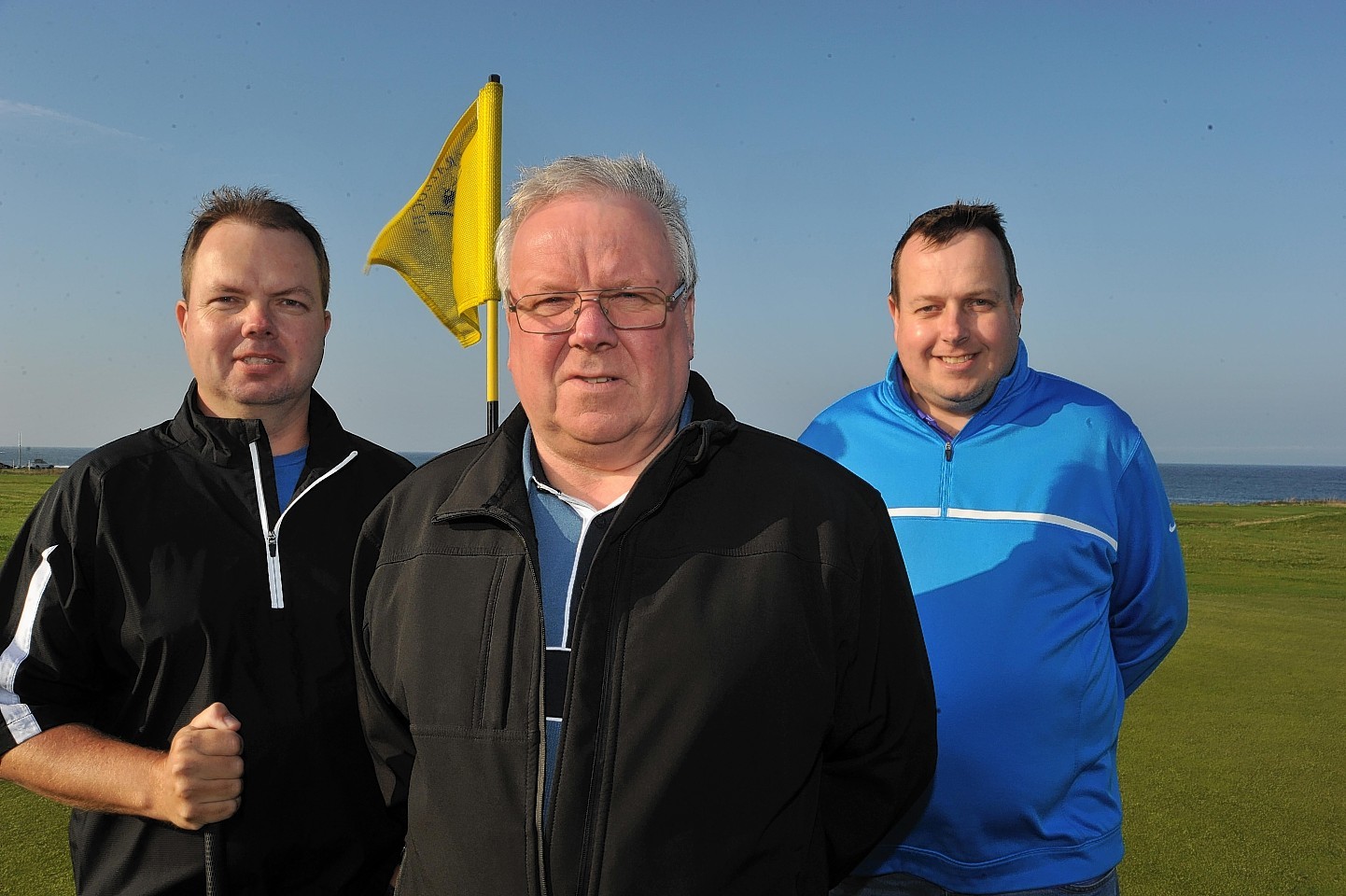A north-east family is raising funds this weekend to combat motor neuron disease in memory of their mother who died just before Christmas last year.
Joan Hastie was diagnosed four months prior to her death, just after her 64th birthday. With no cure to the disease, which attacks the nerves in the brain and spinal cord, her family received support from the charity MND Scotland throughout their mother’s ordeal.
Survived by her three sons, Doug, Martin, and Philip, and her husband George, the family are now aiming to raise both awareness and funds for the Scottish charity which helped the much-loved Rosehearty mother.
Speaking last night, Mrs Hastie’s eldest son, Douglas, said the family looked for anything they could do to help the charity after their mother’s battle with motor neuron disease. In turn, they decided to host a golf event.
Mr Hastie, 43, explained: “We all like playing golf, so I asked if there was something we could do. It just started out with me, my brothers, and my dad.
“Now, it’s got to be a full-blown charity event.”
The event, which is a four-ball stroke-play mixed open, is set to kick-off at Inverallochy Golf Club on Saturday. While tee times are already fully booked, spectators on the day can help the charity with an auction also scheduled to take place.
Mr Hastie revealed that the family has been completely overwhelmed by the support and generosity of friends and businesses.
“We’ve 49 teams coming from as far as Glasgow to play golf. It’ll be a successful day regardless of the weather,” he said.
The profile of motor neuron disease had been significantly boosted this year already with the viral sensation of the ice bucket challenge, in which fundraisers for charities supporting those with the disease dump a bucket of ice water over themselves.
MND Scotland say the ice challenge has raised £425,000 since it first started for their charity alone with the Hastie family’s golf event is set to add a further £10k.
Money raised for MND Scotland goes towards researching the disease, with the charity also providing help into identifying key issues for people with the disease and how they receive support in dealing with the condition.
